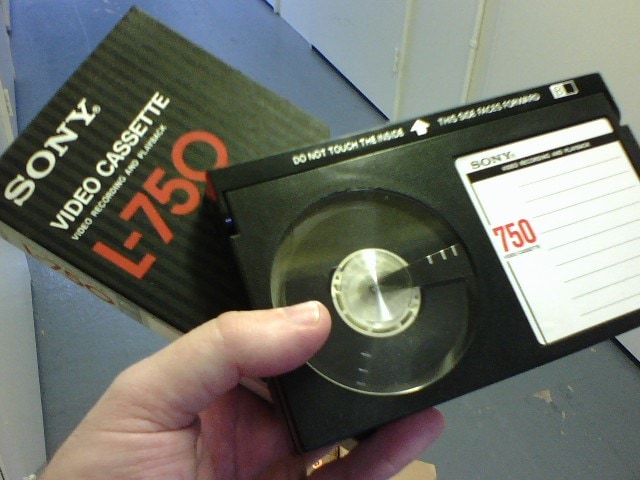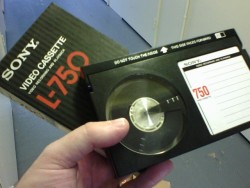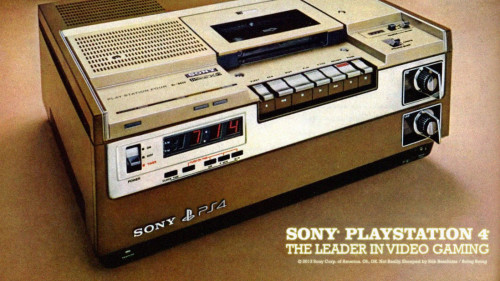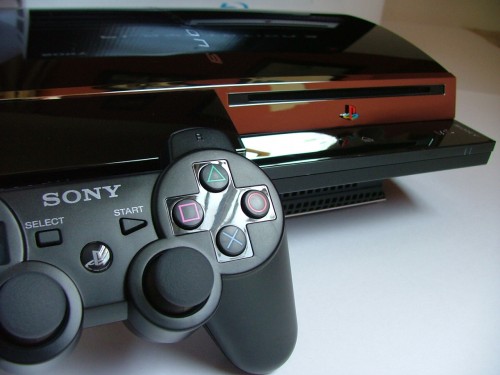How Betamax Bit the Dust – and Other Tales of Forgotten Tech


It’s a long, strange tale, set against a technology landscape that has changed quickly. Betamax was the first major attempt to provide high-quality record and playback capabilities of broadcast and domestic material to the average home.
So why did VHS – a technically inferior standard – win the standardization battle in Europe and worldwide? As with all technological advances, just having the best technical performer doesn’t necessarily mean that you will succeed and get widescale adoption. The per-unit cost to produce and to the end user define, in most cases, how viable a new technology launch will be.

The deals that the VHS lobby made with film studios, the fact that the VHS cassette could hold more minutes of material, and the lower unit cost of VHS meant that Betamax’s days as a domestic standard were always going to be numbered. Betamax lost the numbers game and lost the momentum. And the public’s trust and desire are difficult to regain once they have wavered.
Of course, just because the public went with VHS doesn’t mean that the industry didn’t care about Betamax. Professional broadcasters used a variation on Betamax’s core technology – Betacam, Betacam SP and Digital Betacam – for years after Betamax was no longer considered suitable for home use.
Round and round we go
But then many formats have fought similar battles. Vinyl was seen as a prime target for digital replacement when Philips launched its compact disc (CD) player – there was no stylus to replace and you didn’t have to worry about the vinyl warping or getting significantly scratched.
But vinyl has a redeeming feature – it’s an analogue system. When a vinyl disk plays it isn’t a sampled, quantized, chopped-down and compressed version of the analogue music. Humans are analogue – our ears and eyes are analogue and as we can’t see the matrix we don’t assimilate digital directly – it has to be returned to an analogue expression for us to perceive it. Which may be one reason why vinyl is still hugely popular.
The nature of digitising discards information which is reconstituted later in the process – for a purist, this loss of information is unacceptable. That’s why musicians and DJs tend to like vinyl and will fight to keep the standard alive.
Blu-ray vs HD DVD
The last significant disc technology standard battle fought in the home was between Blu-ray and HD DVD. On paper, HD DVD had it in the bag. A high-definition extension of an existing global standard, HD DVD had the early backing of major film studios while Blu-ray looked to be a riskier, unsupported option.
Blu-ray was a new technology and format – more delicate than HD DVD and initially more costly to produce as it involved completely new production facilities.
Blu-ray’s success can be attributed to many factors but one of the most significant was the inclusion of a Blu-ray drive in the Sony Playstation 3 games console, a master stroke of forward planning and a significant gamble.
Sony was a major player in Blu-ray as a standard and it wanted a way to give the public access to the new disks – so they made a Blu-ray player the main drive in the PS3. Even though the games didn’t benefit from Blu-ray technology at the time, the move positioned a next generation Blu-ray drive in the living room of every gamer with a PS3.
Sony made significant losses on the PS3 in its first years as it was such an expensive drive. But the picture quality of Blu-ray began to gain ground as Blu-rays could be seen in full HD and, once the cinema companies aligned themselves with Blu-ray, the penetration in the living room market proved to be the long-game tipping point which meant that it became the standard for high definition disk delivery.
Toshiba, the main backer of HD DVD, made substantial losses when they called time on HD DVD as a standard. Manufacturers are very wary of another format and an all-out standards war isn’t now viewed as good for business.
Ultra high-definition Blu-ray (UHD) is due for release in early 2016, the first UH DTV physical media standard for the home.
Blu-ray UHD could be the last significant physical non-streamed delivery standard for the home. The explosion in the streamed delivery of music, film and media through providers such as Netflix and Amazon, accessible from the Cloud and mobile devices, coupled with improved broadband speeds means that the need for a physical disk or delivery standard is debatable.
Disks could quite quickly become as redundant a technology as Betamax – certainly as long as the internet works and continues to develop.
reposted under a CC licence from The Conversation
images by stevecadman, Lawrence Leonard Gilbert



Comments
Haesslich January 4, 2016 um 9:34 am
I suspect that the release of the HD-DVD security keys way back when had more to do with Blu-ray taking over the industry then anything. Remember why you have to connect your BD player to the Internet – it’s so it can constantly update security keys to play the latest discs with newer encryption.
Haesslich January 4, 2016 um 9:40 am
There’s also the reports that the Blu-ray manufacturers also paid Warner Brothers to go exclusive with BD that were circulating at the time…
Will Entrekin January 4, 2016 um 10:12 am
Interesting note: Betamax failed at the consumer level, but it may have done better in the professional trade. I worked in commercial production department of more than 30 producers as far as late 2001, and all those producers had Betamax players to view content. As far as I remember, directors reels even came in on Betamax.
And that was just commercials. I’m pretty sure it was widely used in production in general (film and television), for the reason you mentioned — it was a technically superior standard.
Not surprised it’s going away, though; now when I work with agencies, everything is pretty much shared digitally.
KLG January 4, 2016 um 11:34 am
Well, streaming sounds great with a couple of exceptions. A lot of DSL customers don’t have a connection that will support HD streaming and second with Comcast and others instituting data caps HD streaming could get prohibitively expensive. So disks may last longer then we think.
colourgeek January 4, 2016 um 12:44 pm
A not obvious reason for the end of Beta, is that, at least according to a Canon video rep I know, the production of the magnetic tape ended a number of years ago. (Can’t remember when, but I think before 2010).
Thomas January 4, 2016 um 12:58 pm
This is mostly incorrect on HDDVD having the most support of film studios. Pre-release, three of the six major studios went exclusive to each format. Very soon after the formats were released, two of the HDDVD supporters, Paramount and Warner Brothers, started selling both formats. Paramount later flip-flopped on it.
fjtorres January 4, 2016 um 1:32 pm
On the Sony front, the article neglects to point out that by using the PS/3 to boost BluRay, Sony lost command of the console gaming business for the better part of a decade and in the process lost billions of dollars they’ll never get back out of the BluRay business. A very pyrrhic "victory".
Frank January 4, 2016 um 2:37 pm
@fjtorres Sony lost lots of money on PS3 consoles sold and it was outsold by Xbox, but Toshiba lost over $600 million on the failed HD-DVD and Sony gained valuable market share. This led to the dominance of Playstation 4.
While Sony may have lost billions of dollars to win, I am sure they earned billions by owning the blu-ray market.
puzzled January 4, 2016 um 3:26 pm
I always thought that the real reason VHS won is that the Porn Industry adopted it over Betamax.
Anthony January 4, 2016 um 4:44 pm
What Haesslich said. IIRC, Blu-Ray had stricter DRM than HD-DVD, which would make it more appealing to piracy-paranoid, DRM-loving Hollywood…
Chris Meadows, Editor of Teleread January 4, 2016 um 6:01 pm
Though oddly enough, as I mention here, even Blu-ray’s DRM wasn’t that strict. It was just good enough to provide grist for DMCA lawsuits while still being cheap enough not to add too much to the cost of hardware.
fjtorres January 4, 2016 um 9:10 pm
@Frank, Sony lost $16B the first five years of PS3.
They are not making that up pressing BD movies.
Chris Meadows, Editor of Teleread January 4, 2016 um 9:34 pm
I don’t think you can necessarily pin that loss solely on the PS3. Let’s not forget how many wrong horses Sony has backed through the years. Minidisc, Sony Reader, CDs whose DRM roots your computer, and so on. Historically, the only things that have kept Sony on top have been their few flashes of brilliance, like the Walkman or the PlayStation. Those flashes of brilliance pay for all the dross. 😛
Haesslich January 5, 2016 um 9:50 am
Frank – Sony was the dominant player in the video console wars going into the PS3 generation. But the sheer expense of the console at launch combined with a lack of must have games for the first two or three years killed its momentum.
A large part of that cost was the BD drive and the premium Sony charged for it. Between the cost of the console and the cost of BD movies (which didn’t reach comparable pricing with DVD until 2014 or so… they took a huge loss. Remember that Final Fantasy XIII and MGS3 didn’t get released until 2009. The Xbox 360 had backwards compatibility (a feature taken away from the PS3 in later revisions), was launched just in time for the 2005 Christmas rush, was guaranteed Halo 3 (whose predecessor had a huge launch the year before), and it had Call o
Haesslich January 5, 2016 um 10:06 am
Of Duty 2. Plus, the PS3 went on sale at the time Halo 3 came out – so Sony had lost a year of sales to Microsoft. And they had a more expensive console that had no big games coming in the near future (it would be nearly two years before the big exclusives showed up), was a year behind the competition in building up a niche, and its only other special feature (BD playback) was a non-starter when the discs cost double or triple the price of a DVD when almost nobody had HD capable TV’s.
I don’t think you can credit the PS3 for the success of blu-ray – it’s more that Toshiba threw in the towel early as people turned up their noses at the prices when they weren’t getting enough extra out of it. The way the movie studios jumped ship from HD-DVD once its encryption keys had been compromised was only the last nail in the coffin.
fjtorres January 5, 2016 um 11:19 am
Yup.
Sony went from 90% market share in 2004 to 16% and a distant third behind Wii and XBOX and only recovered after the novelty of the waggle wand died off. They were losing $600 on the $500PS3 and were still losing over $100 per unit in 2010. By contrast Nintendo never lost money on Wii hardware and XBOX broke even after 6 months.
Kutaragi was fired for good reason.
Haesslich January 5, 2016 um 9:17 pm
Note also that the PS4 launch was much better and more timely than its predecessor. Between our launching within a week of the Xbox One, having several games which were also on the One (Call of Duty Ghosts, Assassin’s Creed 4, Battlefield 4),several exclusive games at launch (Tomb Raider’s reboot, Dynasty Warriors 8, better pricing at launch (it cost $399 versus the $499 of the Xbone – a reversal of roles), compatibility with existing PSN titles and crossplay capability with the Vita, and MS’s poor management of initial press releases (announcing that mandatory DRM would lock a game to the first console it was used in, mandatory Kinect usage which led to complaints about privacy), they were much better positioned to regain dominance.
It wasn’t Blu-ray which made the PS4 the winner of the current console generation – it was their ability to learn from the PS3 failure, to ensure there were launch games available customers wanted (and not having a two year lag for 3rd party blockbusters), better pricing than their rivals (especially the Xbone), and being able to tie all the extra features together in a way which brought added value for the customer which got them back on top.
Not a BD drive. Although having BD’s being only $10-15 more expensive than DVD versions of the same movie or series helped BD gain more ground from DVD. Also, people actually having HDTVs that could benefit from the higher bitrates.
Haesslich January 5, 2016 um 9:22 pm
It launching, even. Attributing its success to the PS3 BD drive is facetious at best. The PS3 was a marketing bomb, and one which sunk the video game division of Sony into a period of unprofitable years from which they’re only starting to emerge – 9 years later. If it wasn’t for the TV and entertainment divisions carrying them, the video game unit may have gone under 5 years back.
fjtorres January 6, 2016 um 6:52 am
Having BD movies sell for $10 (or less)more than DVD wasn’t the plan. The original plan was for BD movies to sell for $50. The market said hell, no. And the price came down to the $20 range.
BD is nowhere near the cash cow DVD was at its peak.
Nate Hoffelder January 6, 2016 um 8:03 am
Yep. The problem with that plan was that BD wasn’t enough of an improvement over DVDs to justify the upgrade.
DVD were a huge improvement over VHS in terms of durability and accessibility, but for a lot of the movies made in the pre-digital era, the source video quality wasn’t high enough to make full use of a DVD’s digital abilities.
We still upgraded to DVDs because of D&A, but it didn’t make sense to buy a $40 BD when the video quality was the same (I couldn’t see the difference on my old TV, could you?). Instead it made more sense to go digital download/streaming instead of BD.
And with no BDs in my house, there’s no reason to get a player. And so the loop reinforces itself.
Chris Meadows January 6, 2016 um 8:03 am
Something similar (eventually) happened with VHS. Movies were originally "priced for rental" but that didn’t last too many years before they started rolling out priced more reasonably.
Haesslich January 6, 2016 um 10:04 am
I remember when you could buy HD-DVD movies – they weren’t much cheaper than BD, but they WERE cheaper. But without HDTV’s being common, there was no point – especially not at 2-3x the price. And (unlike Blu-ray) DVD was heads and tails above its predecessor in quality when it came out – the extra $40 for the DVD (versus a $20 VHS copy) made sense, especially when it wouldn’t break or wear out as the VHS tape would (as Nate pointed out).
Plus, at that point there were not a lot of streaming video or other delivery methods (like digital cable boxes with built in recording capabilities) with similar video quslity. DVD didn’t have the competition that Blu-ray did… and that competition has only gotten more intense.
DVD also got aboo
Haesslich January 6, 2016 um 10:14 am
A boost from the computer industry at the time, as they became standard issue in the late 1990s due to being able to hold 9gb of data…. and unlike the PS3, were seen as necessities, thus helping expand the base of installed users.
This is in contrast to the current market, where broadband Internet is common (so you’ve streaming services for video, download only marketplaces, and app installers galore that use your Internet connection, high capacity USB connected flash drives and hard drives) that you don’t strictly need a BD drive to install an app or game – much less view a movie. So, yes, BD outlived HD-DVD – but it’s not exactly dominant. Not when Netflix seems to get most of their customers from streaming now (versus the mailing discs model they started with).
I will admit I got a BD-R external drive for my computer – but that was because it wasn’t THAT much more expensive to get it (as it was on sale) than a similarly capable (and equivalent build quality) DVD-RW.
New How Betamax Bit the Dust – and Other Tales of Forgotten Tech – Stephen's Lighthouse January 17, 2016 um 6:14 am
[…] https://the-digital-reader.com/2016/01/04/how-betamax-bit-the-dust-and-other-tales-of-forgotten-tech/ […]